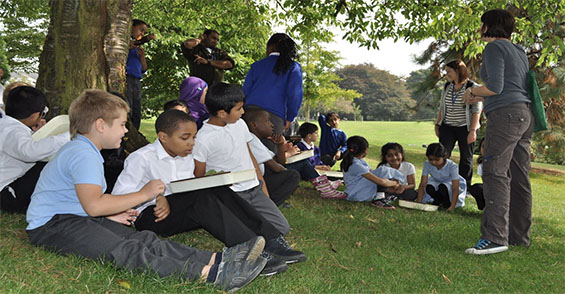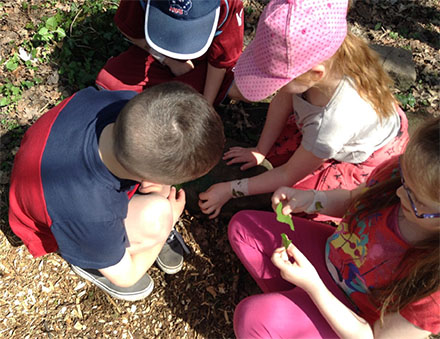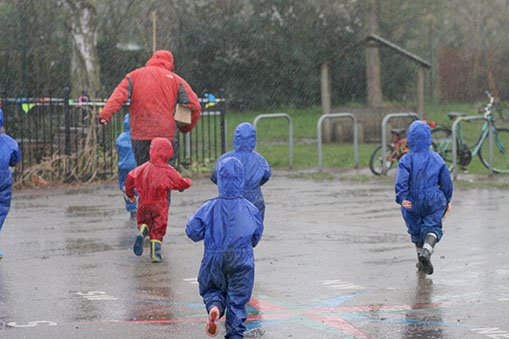Living and Working as though Nature Mattered
This post is greater than 6 months old - links may be broken or out of date. Proceed with caution!

By Professor William Scott, NAEE Chair of Trustees

The National Association for Environmental Education [NAEE] is the UK’s oldest educational charity which supports schools and teachers to help young people understand the inter-relationship between humans and the rest of nature, and the responsibilities that we have towards the planet. Ours is a long-standing and trusted voice and we celebrated our 50th anniversary in September 2021. Uniquely, NAEE produces a termly journal for practitioners and we work with like-minded organisations to promote real-world learning, innovative practice and sustainable school development. We publish blogs, article, reviews, reports and position papers that are freely-available on our website – naee.org.uk – and we also have a bursary scheme which operates across the West Midlands supporting schools providing hands-on experiences for young people.
We are aware that many young people who follow environmental courses and qualifications do so with a career in mind, and we welcomed and contributed to the recent House of Commons Environmental Audit Committee investigation into the jobs, skills and training needed to achieve the UK’s longer-term climate and environmental goals. These are sometimes characterised as green jobs within a green economy. The International Labour Organization definition of such green jobs is “decent jobs in any economic sector which contribute to preserving, restoring and enhancing environmental quality”, but we think that this misses an important point.

Our view is that all jobs should now be seen as green jobs even though they do not have the specific ILO focus on preserving, restoring or enhancing environmental quality. We argue this for three reasons:
[i] environmental laws and regulation already exist and all employers and employees now face these in a routine, everyday way whatever the nature of the job;
[ii] moral imperatives to seek a zero-carbon economy within a biodiverse world underpin these;
[iii] schools have a vital role in preparing young people for life and work.
We understand that there are particular circumstances that affect key industries, e.g. building regulations; air quality standards, and sewage disposal regulations (inadequate, and imperfectly-observed though many of these might be) which make these particularly important because of their wide-ranging social impacts if things go wrong. But in the wider economy, all employers and employees are now faced with moral imperatives and regulatory obligations to save energy, reduce resource use, eliminate waste, protect and restore biodiversity, cut carbon use and footprints, support adaption to climate change, etc. This applies across society from sole traders, to SMEs, and to conglomerates.

Many of these regulations require clear communication from employer to employee, and employee to customer. WWF (UK) agreed with this in its comments on the Dasgupta review of the economics of biodiversity. It said that businesses “must also help to educate and bring customers along with them, leading rather than waiting for customers to demand change”. We agree, and this supports our call for all school leavers to have an essential understanding of key environmental issues. We say this because a knowledge and understanding of the essence of, and background to, all this cannot be the responsibility of every employer, just as essential numeracy and literacy are not. As with literacy and numeracy, it ought to be the responsibility of schools to work with students to develop appropriate attitudes, knowledge, understanding and skills related to living and working as though nature mattered.
Given the above, there’s a need for education programmes in schools to provide an understanding of the background to and the challenges of facing up to climate change and environmental problems. This can provide both a basis for living and working in today’s world and a foundation for employers, FE and HE to build on. This is not in itself a vocational education, and is not just in support of the sort of green jobs as defined by the International Labour Organization; rather, like the development of numeracy and literacy, it is a necessary foundation for nature-respecting, positive and fulfilling lives as workers, consumers, citizens and social actors.
It was clear to us that our conviction that schools must have an essential role in helping to underpin our transition to a sustainable future was not shared by the Department for Education, and we were pleased that the Environmental Audit Committee sent a strong signal to government that it needs to align its curriculum framework and policies towards ensuring that young people are equipped to play a constructive and significant role in our transition to a sustainable society and world. Although this fell on deaf ears, NAEE remains committed to trying to persuade the DfE that it is needed if schools are to play their part in helping to bring about an environmentally sound future for people and planet.